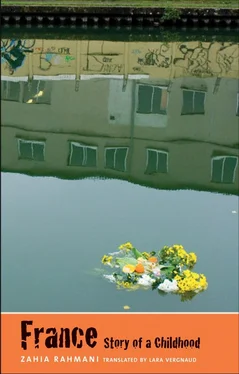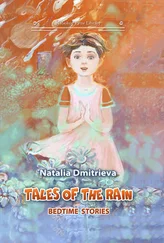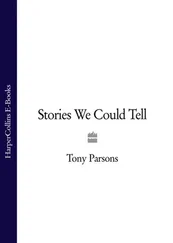And so a descendant of slaves, a broken man, tells me to write about this life laying me low. To get away from them.
American literature tells of its own people, and in so doing offers an exceptional gift. It describes one country’s violence and the nation that emerged therein, making that story the indelible marker of American culture. This literature brings invisible souls of all origins, whose voices were silenced, into the pantheon of great men. No event ever saves these protagonists. We don’t envy their lives or their ambitions, and yet we are drawn in by the inevitability of their fates, which mirror those of an entire category of men whose legacies were erased. I will learn no greater lesson. I owe this literature affection, respect, and lifelong loyalty for describing its own people as outsiders and for its commitment to the displaced, the uprooted man and his path. Through translation, American literature made its invisible souls our own. Forever linking us to a condition shared by anonymous masses kept in ignorance of their number.
Baby Doll by Tennessee Williams is the first to expose me to the debauchery of desire. Because of the excitement provoked by this book, I want to find others. Colette comes to my rescue for a brief moment. But with the exception of The Ripening Seed , there’s nothing in the descriptions of my heroine’s daily life with which I can identify. I find the conventions and mores of her environment too menacing. God’s Little Acre , and the tension and crude longings manifested within, better represents the inhabitants of my world. Those who live nearby and relentlessly force the sexual taboos of “my community” to weigh upon me. The vulgarity I discover in these authors’ books can’t help but remind me of my father’s warning. “In this country, only prostitution awaits you!” The gravity of this threat, which preys upon me, is evident.
I can’t live like a little girl fantasizing about love. I’ve made a leap to adulthood that leaves me few possible daydreams. I have to remove boys from my sight, ignore their existence and the adolescent ritual of seduction. It isn’t until much, much later that I understand my father’s words: “In this country, no one is going to make room for you.”

Algeria, my family, slavery, the black man, the Indian, the impoverished white man—I understood conquest, contempt, domination, the marginalized man. I learned all of that. But there was something literature couldn’t teach me, couldn’t test me on. When I learned it, I stopped dead in my tracks. My world shifted. Auschwitz pulled the ground from beneath me when I hadn’t known a thing about the genocide of the Jews. Renoir, Modigliani, Steinbeck, Faulkner, and the others were quickly put away in a drawer. The deafening roar of this information would be too much for me. The crime was overwhelming, and I would understand only much later that this impact was part of its great victory. Was it worth it to assimilate, to believe in a brotherhood to come, to proudly bear the flag of a universal culture, when the child brought to Europe must learn that its best representatives were exterminated here? In the wake of this lesson I became a timid, distrustful, and watchful adolescent, relinquishing myself only reluctantly to the culture feeding my paralysis. I would need time, lots of time and wandering, to understand that I couldn’t distance myself from the European. I had to walk at his side. I was a part of this defeat, just as much as he was.
I come down to see you. On my advice, you move your arms and legs. Maman, you need to walk, you need to get some exercise. The news of your sick heart, worn out say the doctors, affects me more every day.
When they called me to say, “Come, it’s our mother,” I hung up and left right away to be with her. Fearful of hearing the worst, I didn’t ask a single question. I walked all the way to the Gare du Nord. There, I learned that my train wasn’t leaving for another two hours. I wanted to keep moving. I was afraid. I called my boyfriend. He was at work. “I’ll meet you in Paris, to drive you there,” he said. I didn’t want to wait. I told him I was going to walk, until the last café before the highway, and that’s where he would find me. Behind the station, overlooking the long corridor of train tracks, I saw the world as it was captured in a frame that didn’t include me. Everything was slowly coming to life on a movie screen I couldn’t see. A deep feeling of uselessness swept over me. For the first time, I felt like a photographer. I saw the world outside of me. I wasn’t part of it. My mother. The thought of her death was overwhelming. I pushed it away, I became a ghost, my body disappeared.
I wrote: It was bound to happen like this one day. And we don’t want it. They tell you, “Come, it’s Maman, it’s serious.” You don’t ask questions. The idea of the worst frightens you. You say, “I’m coming.” You pack your things, you walk quickly to the metro, holding back your distress and your tears. They tell you, “Come.” Come, because you need to be there. In the metro you understand it will never be like before. You think, if I have to I’ll stay with her, I’ll stop everything. Then, you want her to live, you’ll stay next to her, and you say, please let her live, I want her to live, she doesn’t deserve this, she still needs to live. At this instant my brother calls me. Her son, her sweet darling, who’s going to be a daddy. He’s crying. He’s crying at the idea that she will never see his child. He’s scared and keeps crying. He tells me how our mother cried out in pain before she collapsed, that she’s in intensive care and that nobody will say anything. That what she has and what’s hurting her is still there. There’s too much of it for a heart worn out from giving so much.
I don’t want to write, but doing so here outside at this café table is keeping me from losing myself, and the love is there, intact, urgently leading me to see her. I don’t want to write anything that may have already happened and that I don’t know about, I want her to live, to still be alive and no longer in pain. I don’t want to be defeated. I want to believe in a hope, to see her alive. I’m scared of her death, and selfishly, of my own. I’ll hold on, I want her to live, I’m waiting, and waiting. I want to see her, look at her, want her to live, Maman I love you so much, I’ve never loved like I love you, I only ever loved you more than anyone else, I love you Maman, I don’t want to write anymore, I want to see you, I’m scared of my own death, I’m waiting, feet in the leaves, for someone to come get me, I want to see you, I want to take you in my arms, crawl in your bed, tell you I love you, I love you, my only, only love.
It’s done. I recopied the passage. I took advantage of a loved one’s presence here to blindly rewrite the traces of that Thursday, October 20, 2005. Since that date, I’ve counted down the days to this period of uncertain convalescence I’m spending with you.
At the hospital, your children are crying. Everything is collapsing for us. Without you, how to live? This country was you alone. Without you, we aren’t really here. What’s going to become of us? Where are we going to live? Can we stay after all? Should we stay? Where could we go? You’re our homeland. The only one able to welcome us. And if we bury you here, we can no longer leave. What are we going to do? We can’t decide on our own. Although we thought you might have liked to join your sisters and parents in that square in Kabylie facing the sea, you never wanted to talk about it. And meanwhile we’re panicked at the idea of staying near your burial place. Suddenly understanding that if we take you back to Algeria, we won’t stay, but we’ll have to go somewhere else, and never return here. We’re gripped by an irrational disgust for a France on fire, which tarnishes us to no end. Tarnishes our children who, born here, are constantly forced to justify themselves in a schoolyard that perpetuates insult and abuse. My nieces are weary of all the nastiness directed against them, “the Arabs,” “the Muslims,” to the point that they finally tell me they don’t want anything more to do with a playground that confines them to the space within the Koran. They embrace that book smiling, they say, in order to better preach the virtues of Gandhi. Preemptively shielding themselves from the violent shock of learning that, even born in this country, of a family that believed in a future for its children, they will never have a homeland.
Читать дальше



![Джеффри Дивер - Where the Evidence Lies [A Lincoln Rhyme Short Story]](/books/403782/dzheffri-diver-where-the-evidence-lies-a-lincoln-r-thumb.webp)
![Джеймс Чейз - The Mirror in Room 22 [short story]](/books/421068/dzhejms-chejz-the-mirror-in-room-22-short-story-thumb.webp)








